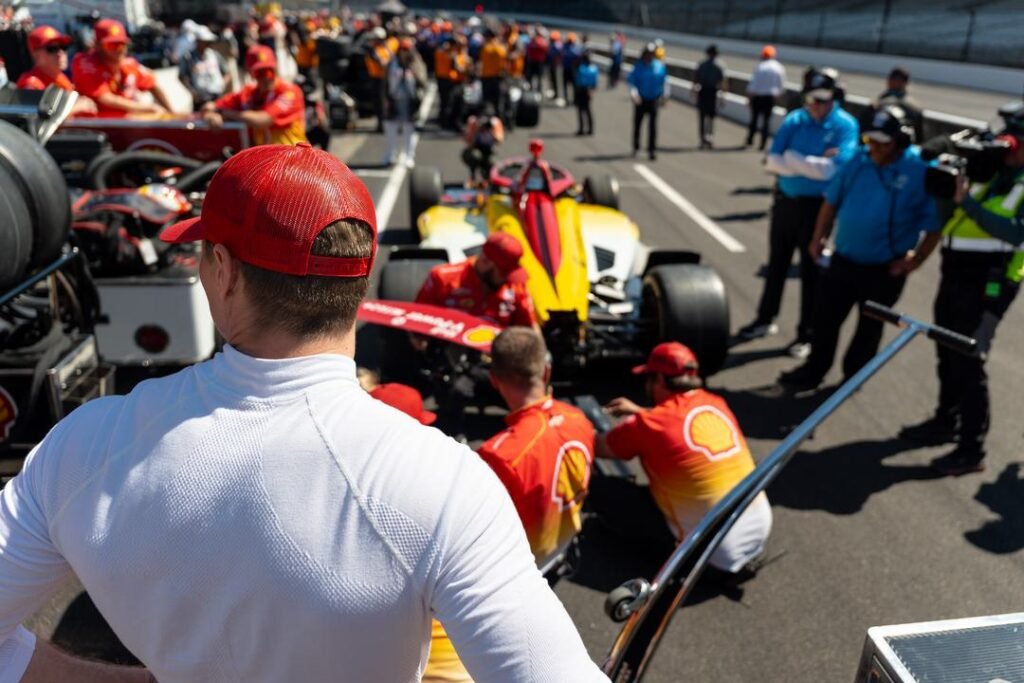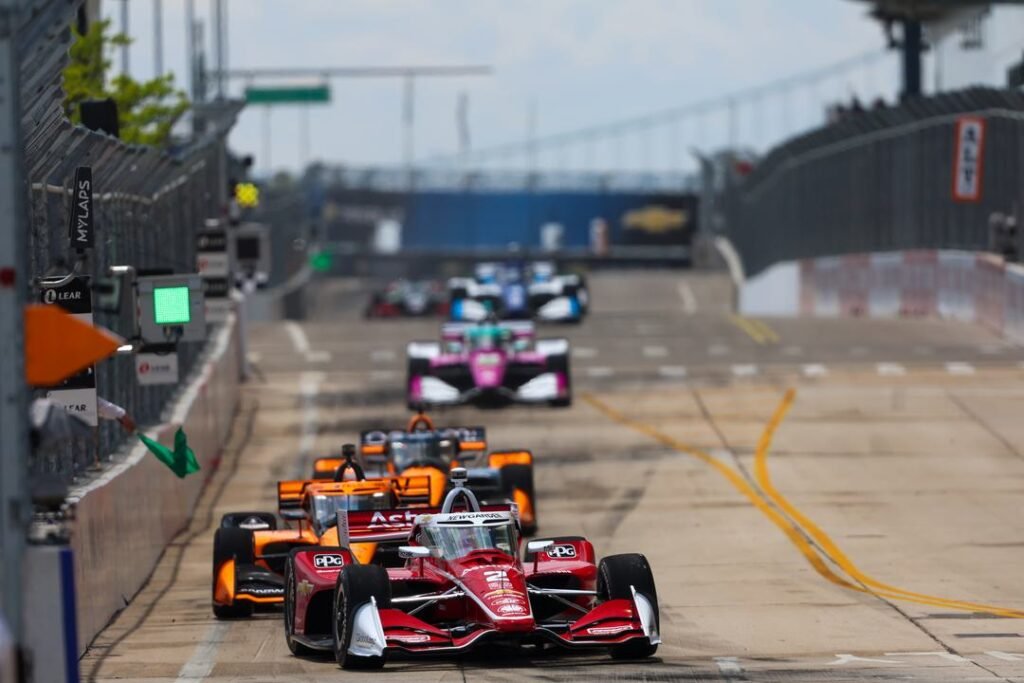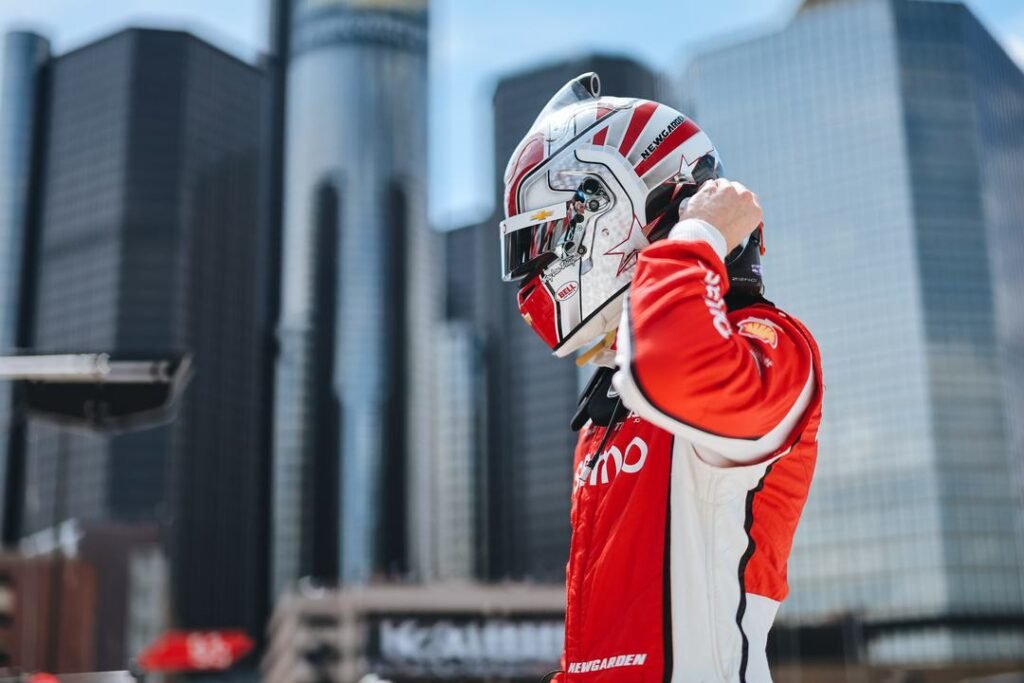Josef Newgarden arrives at the IndyCar Detroit Grand Prix weekend carrying the weight of what might have been at the Indianapolis 500. The two-time IndyCar champion had mounted one of the most impressive charges of race day, climbing from the back row to crack the top ten before a fuel pressure issue ended his hopes on lap 135.
Now, as the series returns to street circuit racing at Belle Isle, Newgarden is ready to channel that disappointment into determination for the upcoming double-header weekend.
Speaking to the media ahead of the IndyCar Detroit GP, Newgarden reflected on his Indy 500 experience, “Yeah, just ready to go racing again.”
“You know, it’s a team sport. Sometimes it falls your way and sometimes it doesn’t. Unfortunately, Indy didn’t fall our way. You just reset and get ready for another race. I’m glad to be here at the track and ready to go for it.”
The mental game of recovery
The Indianapolis 500 result was particularly crushing given the circumstances that led to Newgarden and teammate Will Power starting from the final row. Their disqualification from qualifying due to illegal push-to-pass usage forced them to begin the race in 32nd and 33rd positions respectively. What followed was a masterclass in racecraft from Newgarden, who systematically worked his way through the field before mechanical failure intervened.

For any driver, such setbacks can be psychologically challenging, but Newgarden believes that elite-level motorsport demands a particular mental fortitude that separates professional drivers from the rest.
“You know, I think you innately, I mean, I do believe this, I just think you have to have an innate ability to block out any sort of fear or emotional distress when you’re in the car, even after a traumatic injury,” Newgarden explained when discussing how drivers cope with setbacks and crashes. “Now, that’s different for everybody, but there just seems to be something innate in professional drivers where they can block out the noise easier than others.”
This mental resilience, according to Newgarden, isn’t something that can necessarily be taught or trained. “It’s so hard to do this job if you can’t. You know, and if you’d ask, ‘well, how do you train that?’ I don’t know how you train it, I really don’t. That’s why I say it’s something innate. You either have that ability or you don’t. It’s the best way I can put it, you know? Yeah, I mean, it’s the best way I can put it. It’s a very difficult skill to have.”
The physical and mental connection
As the IndyCar Series prepares for the unique challenges of the Detroit GP, Newgarden emphasises the interconnected nature of the physical and mental demands that drivers face. The Belle Isle circuit, with its combination of high-speed sections and technical corners surrounded by unforgiving concrete barriers, exemplifies the type of venue that tests both aspects simultaneously.
“Probably that they are directly linked,” Newgarden said when asked about common misconceptions regarding the demands of professional racing. “You know, a physical drain is a mental drain and vice versa. There are some tracks that are more mentally challenging, which take a tremendous physical toll, and vice versa. Some tracks are really physical and mentally it’s draining. So you have to have both systems sort of working in unison.”
This holistic approach to racing performance becomes particularly crucial at venues like Detroit, where the margin for error is minimal and the physical demands of wrestling a 700-horsepower Indy car around a bumpy street circuit for 70 laps can be punishing.

“You know, you both have to be trained and primed and ready to do the task,” Newgarden continued. “If you don’t have that, then some of these races are tough to survive as far as from a physical standpoint. I think people don’t realise that. They think either it’s not a physical thing to do, is drive race cars, or it’s maybe not mentally taxing. Regardless of which one it is, depending on the track, they’re both very demanding and they play off each other.”
Redemption for Newgarden in Detroit
As Team Penske prepares for the IndyCar Detroit Grand Prix, Newgarden’s focus has shifted entirely from the disappointment of Indianapolis to the opportunities that lie ahead.
With the championship battle heating up and plenty of races remaining in the 2025 season, Newgarden’s philosophical approach to the ups and downs of motorsport may prove crucial. His ability to compartmentalise disappointment and channel it into future performance has served him well throughout his career, delivering two championship titles and multiple victories.



